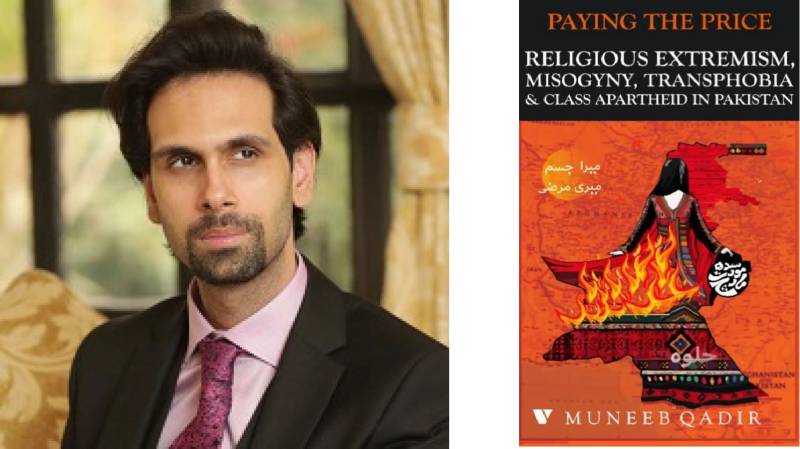
Muneeb Qadir's monologue-styled debut book Paying the Price: Exploring Religious Extremism, Misogyny, Transphobia & Class Apartheid in Present-Day Pakistan is a frank conversation that needed to be had.
In essence, the author takes stock of hypocrisies ripe in contemporary modern-day Pakistan whilst also tracing some of the historic roots of how the country got there in the first place. In fact, the ideas expressed in the book are essentially everything that we have seen, known and felt – but have not had the courage to put out in as many words as Muneeb Qadir did.
Contrary to what some might imagine, a book that addresses religious extremism, misogyny, transphobia and class apartheid in Pakistan is by no means your everyday academic discourse, undertaken with an objective lens addressing issues with distance and disconnect. Instead, the author writes very much from his personal lens and injects himself fully into the discourse – bringing out anecdotes from his own lived experiences to illustrate what he writes about.
The book is concise and performs the crucial task of documenting and putting on record some of the most horrific and unfortunate aspects of our recent history
The result is that the book is likely to immediately connect with those who live in our time. It would be expected to resonate particularly with those who are aware of the context of some of the very Pakistani and local nuances and examples that he quotes. That being said, perhaps these references might not make too much sense for those outside that local context of contemporary Pakistan or those not aware of the recent headlines that made it to news. In this context, one feels that the citations and references could significantly be improved upon if subsequent editions are published – not least because this would help the reader who needs more context.
Nevertheless, it is important to remember that the author has primarily written for his time. And in doing this, he does a great job at stringing together some of the hypocritical stances and behaviour that we could all see manifest in our society like writing on the wall.
Muneeb Qadir is not afraid to take names, nor does he shy away from appreciating the good, where ever any of it has been done by those very people and/or institutions and forums that he is otherwise critical of.
The biggest strength of this book lies in the way Qadir has written it, making it conversational and easy to read. As such, the book is concise and performs the crucial task of documenting and putting on record some of the most horrific and unfortunate aspects of our recent history. These are, after all, occurences that must not be forgotten or forgiven.
I had heard of “speaking truth to power,” but Muneeb Qadir has taught us how to first speak truth to ourselves.

